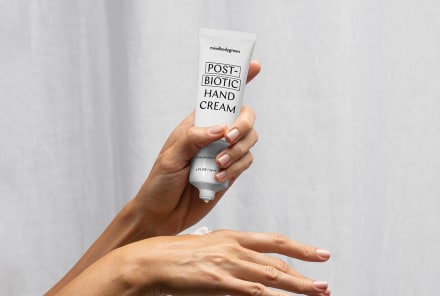Advertisement
6 Scientific Reasons To Add Music To Your Self-Care Regimen


When you focus on self-care, you probably make sure to eat nutritious foods, exercise regularly and get enough sleep. These are the basic building blocks of self-care, after all. And maybe, for bonus wellness points, you even include practices like regular massage, meditation, yoga, acupuncture and more in your self-care routine.
But let me ask you this: are you including music in your self-care routine? You heard me right: music is a powerful force for healing and an improved sense of well-being. Here are six, scientifically-backed reasons why you should definitely consider turning on some tunes for a potent addition to your wellness regimen.
1. The positive feelings evoked by music can be as powerful as sex, drugs or eating.
Researchers at McGill University took fMRIs of participants who were listening to favorite songs. They found that during peak moments of music, the participants' brains released dopamine. Dopamine is a hormone that is linked with feelings of reward (for example, it is also released in response to sex, eating and certain illegal drugs such as cocaine).
Interestingly, dopamine was also released right before the peak moments in the songs — as if the brain was anticipating the reward to come. That's why for many of us, listening to familiar songs can overwhelm us with positive feelings — we feel "high" because our bodies are literally experiencing a physiological reaction to the music we love.
2. Sad music can actually help you out during hard times.
While it may seem counterintuitive, listening to sad music can provide you with a meaningful experience. In one study, participants reported that they felt emotions such as wonder, transcendence, peace, power and nostalgia while listening to melancholy tunes. This suggests that there's definitely some merit to putting together a sad playlist when you're upset.
3. Music helps reduce anxiety.
In a sample of patients waiting for surgery, some were given drugs to aid with relaxation, while others were exposed to relaxing music. Those who listened to music actually experienced a greater reduction in anxiety than those who were medicated. Music was also found to be associated with reduced pain and distress in a sample of children who were having IVs inserted. So, the next time you're feeling stressed, you actually don't need to do much. Don't feel like exercising or meditating to chill out? Well, you can experience pleasure and stress-relief all from the comfort of your living room. All you need to do for some quick (yet still meaningful) relaxation is find some great music you like, and feel its healing power.
4. Music can help provide pain relief. Literally.
In a sample of patients with fibromyalgia, music was found to reduce pain and increase functional mobility. Believe it: music can actually reduce feelings of physical pain. Don't believe me? There are more results to prove it ...
In another study, patients with osteoarthritis and rheumatoid arthritis who listened to music for an hour a day reported less pain compared to a control group. In fact, in the group that didn't listen to music, the reported pain actually increased.
That said, when you're using music for pain relief, it's important to be careful about the type of music you are listening to. Researchers found that people who were listening to music considered by most people to be "pleasant" experienced less pain than those listening to "unpleasant" music.
5. Music may increase immune functioning.
Sure, it's essential for immunity to eat whole, unprocessed foods, to stay hydrated, to maintain stress-relief practices and to get enough rest each night. But there are other, surprising things we can do to boost immune function, one of which is, you guessed it, listening to music!
While research in this area is relatively new, one study found that participants' levels of IgA (an antibody in our immune systems) showed a greater increase after listening to music compared to those who listened to a clicking sound, a radio broadcast, or silence. All the more reason to make some time for music on a daily basis.
6. Music builds connection.
In one research study, participants who were asked to sing for 30 minutes showed an increase in oxytocin (a hormone associated with bonding — it's released after childbirth and sex). Playing music as a group has also been linked to increased empathy in children. Karaoke, anyone?
The bottom line? Whether it's jamming in your car, listening to relaxing melodies at home or singing in the shower, try to incorporate more music into your life. Greater health and happiness awaits you!
Watch Next
Enjoy some of our favorite clips from classes
Enjoy some of our favorite clips from classes
What Is Meditation?
Mindfulness/Spirituality | Light Watkins
Box Breathing
Mindfulness/Spirituality | Gwen Dittmar
What Breathwork Can Address
Mindfulness/Spirituality | Gwen Dittmar
The 8 Limbs of Yoga - What is Asana?
Yoga | Caley Alyssa
Two Standing Postures to Open Up Tight Hips
Yoga | Caley Alyssa
How Plants Can Optimize Athletic Performance
Nutrition | Rich Roll
What to Eat Before a Workout
Nutrition | Rich Roll
How Ayurveda Helps Us Navigate Modern Life
Nutrition | Sahara Rose
Messages About Love & Relationships
Love & Relationships | Esther Perel
Love Languages
Love & Relationships | Esther Perel

















